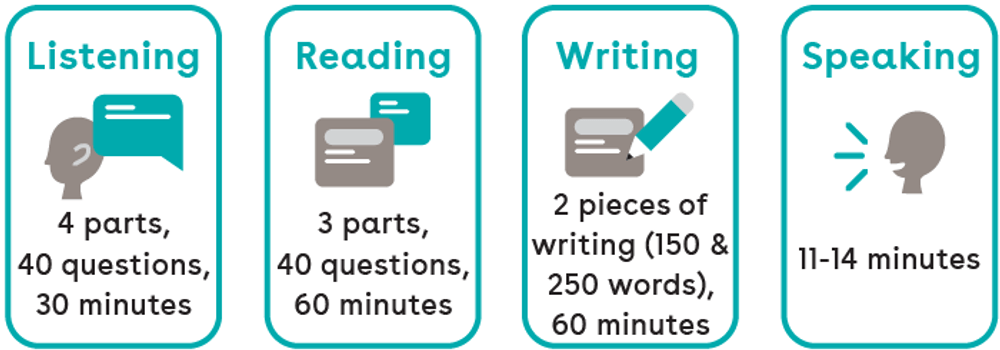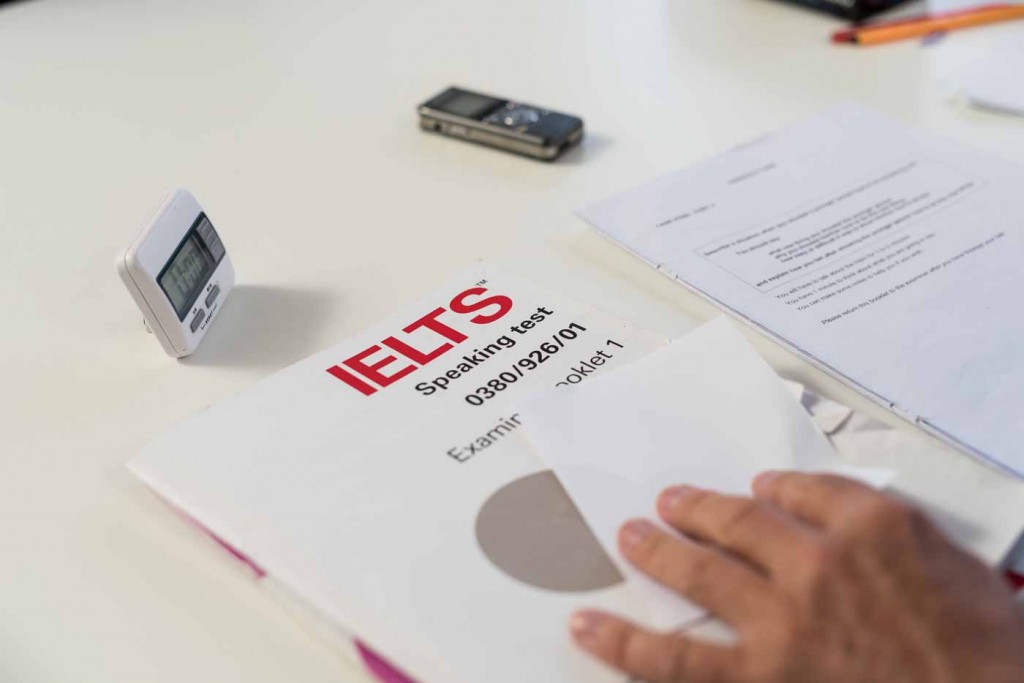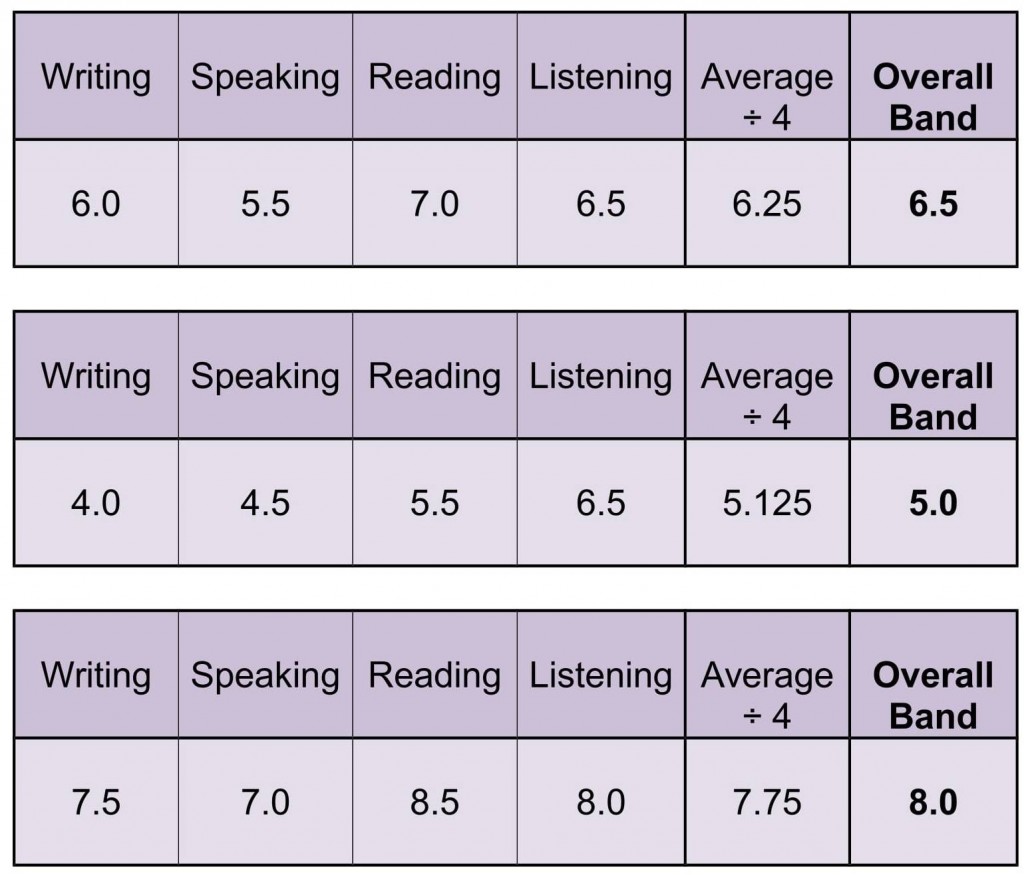If you are thinking of taking the IELTS examination, then we know that you have the courage to duck yourself in the pool of better opportunities for a promising future. However, when it comes to scrounging for information on the internet, your mind may start loitering on strings of questions- what exactly is the IELTS Examination, what is the format of IELTS, what is the cutoff for IELTS, what is the procedure, how to prepare for the same. If all of these were stuck in your head, then you are at the right place.
Are you ready to plunge yourself into the world of information about the IELTS? First, let’s understand what the IELTS Examination is.
The IELTS test is the world’s most popular English language exam. It’s a standardized English language test that’s gaining in popularity across the world. The IELTS test is meant to assess non-native English speakers’ abilities to communicate, write, read, and interpret oral English. It is designed for students and workers who want to study or work in an English-speaking environment.
Why is the IELTS Examination required?
Scores of students are unsure why IELTS results are important. The fundamental rationale is that foreign institutions and visa granting authorities want to make sure you won’t have any communication issues when you’re in the country. Because your overall IELTS score is so important, you must exhibit exceptional understanding and command of the English language.
Many colleges and universities may not even require IELTS scores for admission. Keep in mind, however, that if you do not take IELTS, your chances of getting a student visa may be harmed since visa officials may not be convinced of your English proficiency if you do not have IELTS results.
What is the IELTS format?

1. Listening Section
Candidates must listen to recordings and answer questions based on them in the IELTS 2021 listening portion. Before the questions are answered, the recordings can only be listened to once.
The IELTS Listening section is divided into four sections. There are ten questions in each component of the IELTS listening action. As a result, the total number of questions in the listening part is 40.
2. Reading Section
There are three sections to the Reading module. Test takers will read three texts from a variety of sources, including books, journals, periodicals, newspapers, and other media. Test takers must answer multiple-choice and short-answer questions after reading the content.
3. Writing Section
There are two assignments in the Writing module. Test takers must compose at least 150 words in 20 minutes for the first task. Test takers must compose at least 250 words in 40 minutes for the second activity. Depending on whether the test taker is taking the Academic or General Training Exam, the objectives and subjects will differ.
4. Speaking Section
The Speaking module consists of a face-to-face interview in which the test taker converses with an examiner. The module is divided into three sections:
Introduction: The test taker provides information about his or her home, family, job, studies, hobbies, interests, and reasons for taking the IELTS exam, among other things.
Long Turn: A task card regarding a certain topic is handed to the exam taker. The exam-taker gets one minute to prepare for the topic, after which they must deliver a two-minute speech on it.
Brief Discussions: During the lengthy turn part, the examiner and the test taker have a more in-depth conversation regarding the themes addressed.
What are the types of IELTS examinations, and which one to choose?

IELTS Academic: Universities and professional registration organizations demand IELTS Academic.
If you wish to apply for a place at a university or other higher education institution in an English-speaking nation or in a non-native English-speaking country where courses are delivered in English, you must take the Academic exam.
IELTS General Training: People who desire to work in or emigrate to the United Kingdom, Ireland, Australia, Canada, or New Zealand should take the IELTS General Training course. It’s generally acknowledged for:
- Applications for visas and jobs
- At the high school level, education is provided.
- Practical occupational training is an example of non-academic training.
The results of your exam are utilized by numerous institutions to determine whether you will be able to effectively study, work, or reside in the nation to which you are applying.
IELTS Life Skills: The UK government accepts IELTS Life Skills for visa and immigration reasons.
Many people who are looking into an IELTS exam to take aren’t aware that the IELTS Life Skills test exists. It is, in fact, the most recent of the exams, having been established in 2015. It is tailored to suit UK immigration criteria and solely assesses speaking and listening abilities.
What are the IELTS Examination preparation tips?
1. Make a realistic schedule:
To pass any competitive exam, you must establish a study plan and timetable that ensures you will be prepared on time for the exam. Your study plan should be carefully prepared, taking into account both the things you need to improve on and the ones in which you excel. It’s important to start with a practice exam and an assessment of your current position. One of the most significant preparation tips is to make a strategy based on the difference between your current and desired scores. As a consequence of this assessment, you will rapidly learn about your abilities and limits; consequently, you should split your time wisely.
2. Developing sharp vocabulary:

Pick up a newspaper every day and make it a practice to learn a few new phrases every day to increase your vocabulary. When you come across a new phrase when reading a book or magazine, make a note of it and look it up in a multilingual dictionary. Use an English to English dictionary to learn about the words or phrases while looking for the definition. An innovative approach for learning new words is to make paper bits of paper with words you’ve just learned written on them and place them in a box. Draw a few pieces of paper at random every day and try to remember the meanings of the words you get.
3. The art of listening:
Listening tests your ability to understand verbal communication in English in an audio format as well as your attention and attentiveness. Audio scripts, which are word-for-word transcripts of the audio you listen to, are the best way to prepare for the listening section. Furthermore, because you only have one chance to listen to the audio in this section, you must train yourself to comprehend everything that is said in a single attempt. Allow yourself to cease practicing audio examinations to begin your preparation, but as time goes on, you must also analyze your ability to reply after hearing audio files.
4. Construct your responses:
IELTS is a timed test that includes MCQs, gap-filling questions, short replies, long responses, and other types of questions. As a result, you’ll need to schedule some time to revise your replies. You must acquire the crucial habit of time-bound creation because the majority of the questions need you to write the answer rather than choose an alternative. You’ll need to put in a lot of practice time and read through a lot of sample papers, both online and offline. Pay attention to English news networks and try to prepare your replies to queries during a conversation; this will certainly enhance your writing and speaking skills.
Is there any IELTS Scholarship?
One of the most significant disadvantages of studying abroad is having to pay tuition in a foreign currency while also dealing with exorbitant living costs. Because of these factors, many students are unable to travel overseas and must settle for other options. Students may now realize their dreams thanks to the availability of numerous IELTS Scholarships and education financing. Scholarships, as well as other fellowships and awards, are often granted to eligible students and may be found on each college’s official website. For studying abroad, students can also take out an education loan from a financial institution.
What is the IELTS Cutoff?
IELTS is a test that evaluates students’ English language skills at all levels. As a result, pupils can never flunk the exam. On a scale of 1 to 9, students receive an IELTS score for each of the four abilities, as well as an overall band score. Candidates should be aware that the IELTS cutoff score changes depending on which schools and programs they are interested in and that not all institutions and programs need candidates to pass the IELTS exam. If you want to apply to universities, get a job, or immigrate to an English-speaking nation, your total IELTS band score is crucial.
What is the procedure of the IELTS results?

IELTS exam results are usually available within a week (online) or 13 calendar days (offline) after you take the test. When your results are available, you will be notified by email. You may view your IELTS scores by logging into your account on the IELTS Results website.
Frequently Asked Questions section
1. Can I take the IELTS online from home?
Yes, you can take IELTS Indicator, the IELTS administration’s new online IELTS exam. You may take this exam online from the comfort of your own home if you have the necessary equipment and have set up your computer according to the instructions provided by the IELTS administrator.
2. What is the validity after taking the IELTS examination?
The IELTS exam score, also known as the IELTS Test Report Form (TRF), is valid for two years after the result is announced.
3. Is it possible to postpone the IELTS test?
If you need to modify the date of your IELTS Exam, you can do so up to five weeks before the scheduled test date by requesting a transfer. The availability of the next IELTS test date, on the other hand, will be determined by the test center and is subject to availability.
4. How many times is the IELTS exam given each year?
The IELTS exam is not scheduled for a specific number of times. It is held many times a year to provide applicants with the option of picking a day and taking the test whenever they are ready. Furthermore, there is no limit to the number of times you may attempt or retake the test. Simply pay the exam retake cost and take the exam as many times as you wish (given that you have to pay the fees for every attempt).
5. What is the maximum number of IELTS tries that may be given?
The IELTS exam is not limited in any way by the IELTS governing organizations. You may retake the IELTS test as many times as necessary until you get your desired score. You must, however, pay the IELTS exam cost for each try.
6. After receiving results, should one ask for remarking?
If you don’t have a strong basis to believe that a mistake has been made, don’t ask for a comment. Because marking is closely controlled and regulated, and examiners are highly trained, it is improbable, but not impossible, that a mistake has occurred.
There will always be some who feel you should have received a better grade. Any faults they make, on the other hand, will very probably be their own, not the examiners.
7. Is it possible to take up only one or two parts again if one is not satisfied with the performance?
No, there is no option of reapplying for particularly one section; the entire test needs to be taken again.

